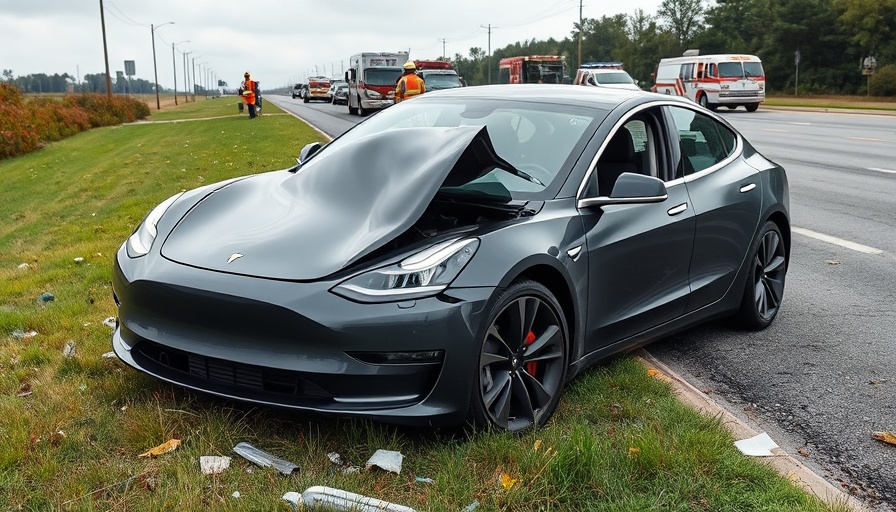
Tesla’s Autopilot Technology Under Fire: What Happened?
The recent jury ruling in Miami has sent shockwaves through the automotive industry, particularly for companies like Tesla that are at the forefront of driver-assist technology. The federal jury held Tesla partially responsible for a fatal crash attributed to its Autopilot feature, awarding a staggering $243 million in damages to the victims' families. This decision marks a significant legal precedent as it suggests that advanced automotive technologies bear more responsibility for safety than previously assumed.
The Implications of the Ruling on the Automotive Industry
This ruling is poised to impact not only Tesla but the entire automotive sector. As financial analyst Dan Ives of Wedbush Securities noted, the verdict will resonate throughout the industry, possibly emboldening more individuals to file lawsuits. With the rapid growth and implementation of autonomous technology, manufacturers need to improve assurances regarding the security and reliability of their systems. The decision serves as a clarion call for strict adherence to safety protocols in the development of self-driving technologies.
Shifting Narrative: Who is Responsible?
At the heart of this case is a vital question of responsibility. Tesla's argument hinged on the notion of driver error, highlighting the driver's admission of distraction due to cell phone use. However, the jury pointed to the technology’s failure as a significant factor. This dual accountability raises questions about the future liability structures in the automotive sphere. As the technology continues to evolve, a clearer understanding of responsibilities will be essential not just for manufacturers but for consumers relying on these technologies for safe transportation.
The Role of Transparency in Technology Development
The ruling has also highlighted the critical need for transparency in the automotive sector. The plaintiffs argued that Tesla withheld crucial evidence regarding the crash, which raises ethical questions regarding corporate behavior in the tech industry. Ensuring that data regarding safety incidents and technological failures is readily available can aid in both legal and consumer trust, which is paramount for ongoing innovation in the sector.
The Future of Autonomous Vehicles
Tesla’s plans to introduce a driverless taxi service in select cities suggests a fast-tracking of autonomous technology deployment. However, the implications of this ruling may cause a temporary slowdown as the company reassesses safety protocols and public perceptions of liability. The need for robust safety systems is even more pressing as autonomous technologies become more prevalent. This shift also reinforces the importance of public trust, which can significantly influence consumer adoption trends.
Insights for MedSpa Industry Professionals
For MedSpa owners and managers looking to enhance operational efficiency amid rapid technological advancements, the lessons from this ruling are invaluable. Emphasizing transparency with clients concerning treatment technologies, much like the automotive sector must do with safety, can build trust and promote loyalty. As technology evolves, staying informed on legal precedents can help businesses navigate their own risks associated with technological innovations.
The Bottom Line: What’s Next for Tesla and the Industry?
Tesla has stated that it will appeal this verdict, which suggests that the legal debate surrounding automotive technology liability is far from over. For stakeholders in the automotive and technology industries, especially those in the healthcare technology sector, this case underscores the importance of robust safety measures and transparent practices. As advancements continue to transform the landscape, understanding the legal and ethical ramifications will be crucial to maintaining consumer confidence and fostering innovation.
 Add Row
Add Row  Add
Add 

 Add Element
Add Element 


Write A Comment